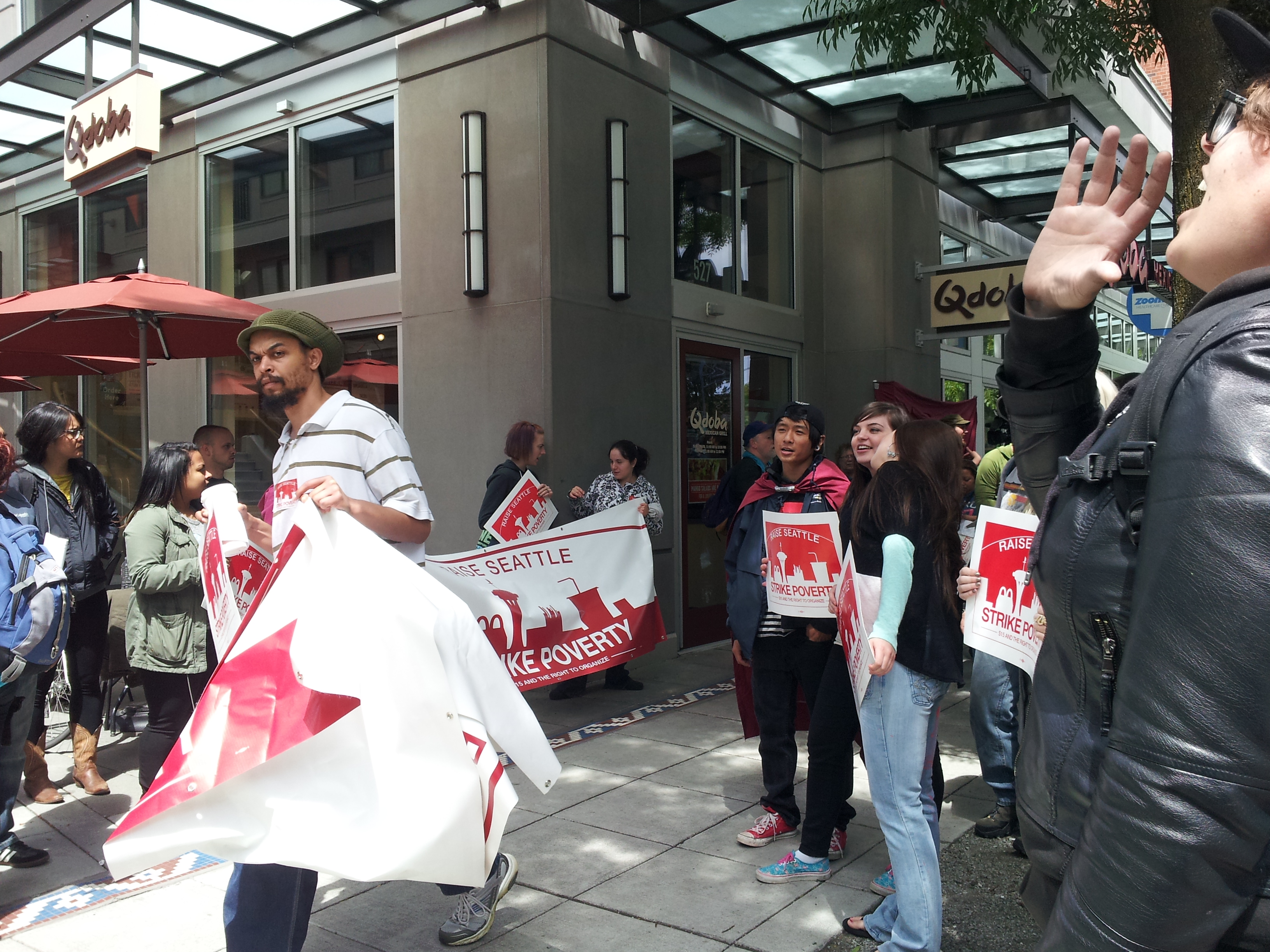The only thing that spread faster than Thursday’s city-wide labor walkout at Seattle fast-food joints were the local politicians scrambling to support it.
As hundreds of activists marched from fast-food chain to fast-food chain to demand $15 an hour and the right to organize, Mayor Mike McGinn’s sentiment was typical: “I support fast-food workers’ organizing effort because they deserve a living wage that can support their families. #strikepoverty,” he tweeted Thursday afternoon.
Also signing on with their support was King County executive Dow Constantine, mayoral candidates state Sen. Ed Murray and Peter Steinbrueck, and Councilmen Richard Conlin and Mike O’Brien.
But among their full-throated support of the one-day strike was some fancy word-work that has allowed them to duck a question that may seem obvious: Do they support a $15-an-hour minimum wage, a policy that would best ensure that the striking fast-food workers’ demand is met?
Across the board, the policymakers hedged on the figure.
In an e-mail exchange with McGinn spokesman Aaron Pickus, the mayor’s office stuck to the more vague “living wage” language. “The mayor supports a living wage for all workers, including benefits like paid sick leave. If you check out our Jobs Plan, you will find a great deal on how this support translates into our work on shared prosperity in the local economy,” he wrote. “We have not taken a position on a new minimum wage for Washington State.”
King County Executive Dow Constantine spokesman Frank Abe seemed taken aback by the question, saying he’d get an answer and call Seattle Weekly back. No call has come in.
Mayoral candidate Peter Steinbrueck also supported the walkout, but then seemed to support a wage damn near the current minimum wage: “Washington state’s minimum wage [$9.19] is the highest of any state in the nation. A living wage for a single adult in Seattle is calculated at $9.64.”
Other politicians who voiced their support, including Murray, didn’t return calls.
The point isn’t whether any of the politicians who supported the one-day strike have a good track record on workers’ rights: As mayor, McGinn signed in to law Seattle’s paid-sick-leave ordinance, a huge feather in his cap as regards labor issues.
But it does raise a question of what exactly they were supporting on Thursday.
“It’s one thing to give lip service and do political posturing on which way the wind is blowing,” says Kshama Sawant, a city council candidate who’s supported $15-an-hour minimum wage since her 2012 campaign for state House. “It’s another to say I won’t take corporate contributions and support a $15 minimum wage. It’s like drawing a line in the sand, saying I’m going to fight for this.”
A Socialist candidate, Sawant supported the walkout, but says some aspects of it played out like a Democratic Party event, with lawmakers getting a free pass to be seen as supporting labor without backing it up with solid policy stances.
Organizer Sage Wilson has another take. “We think $15 is a good number for what to help people to support themselves, but I would describe it as a horizon,” he says. But, he argued, even lip service can start a movement for better wages. Right now, he says, “There’s a lack of will, a lack of space in the public debate” about low-wage workers. “The idea is to spark a workers’ movement. Create a space.”
Is $15 an hour an untenable stance for mainstream politicians to take? Upon hearing the demand, Wilson says, people are apt to say, “Whoa, $15?”
“But when people say [that equals] $30,000 a year, and that the wage required to live in a studio apartment in Seattle is $14.50, they say, ‘Yeah, that really makes sense.’ ”








